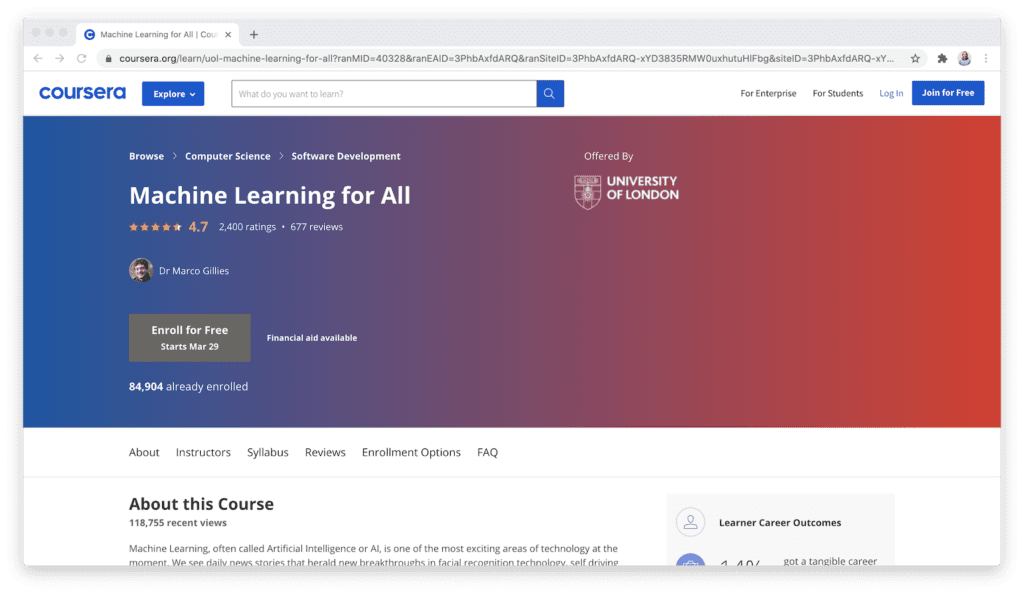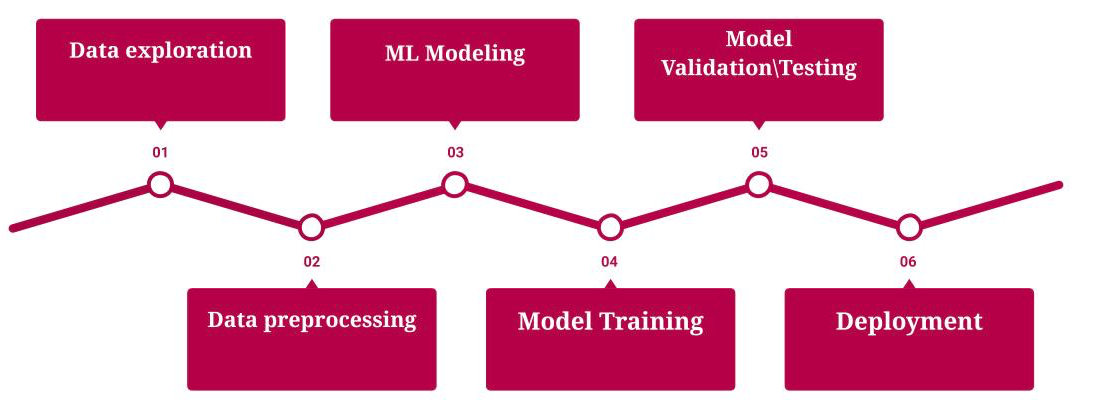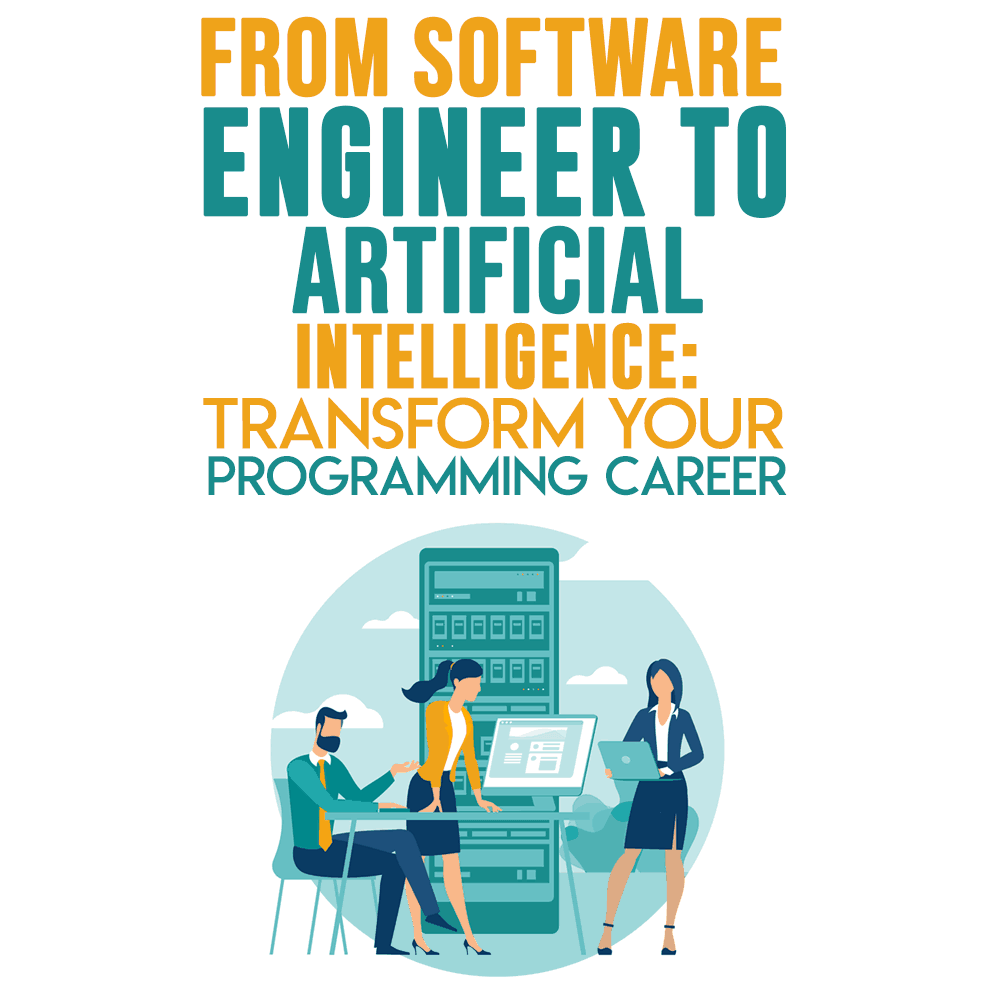All Categories
Featured
Table of Contents
- – All about I Want To Become A Machine Learning ...
- – 19 Machine Learning Bootcamps & Classes To Kno...
- – The Facts About How To Become A Machine Learn...
- – Not known Factual Statements About Zuzoovn/ma...
- – The Buzz on How To Become A Machine Learning...
- – The smart Trick of Best Online Software Engi...
- – An Unbiased View of What Does A Machine Lear...
Some people think that that's unfaithful. If somebody else did it, I'm going to use what that individual did. I'm requiring myself to think through the feasible remedies.
Dig a little deeper in the mathematics at the beginning, just so I can construct that structure. Santiago: Finally, lesson number seven. This is a quote. It claims "You need to comprehend every detail of a formula if you wish to use it." And after that I state, "I believe this is bullshit recommendations." I do not think that you have to comprehend the nuts and screws of every algorithm before you use it.
I've been making use of semantic networks for the lengthiest time. I do have a feeling of just how the slope descent functions. I can not discuss it to you right currently. I would certainly have to go and check back to in fact get a far better instinct. That does not mean that I can not fix things utilizing neural networks? (29:05) Santiago: Trying to force people to assume "Well, you're not going to achieve success unless you can describe every single information of just how this works." It goes back to our arranging instance I believe that's just bullshit suggestions.
As an engineer, I have actually worked with many, lots of systems and I've utilized lots of, several things that I do not recognize the nuts and bolts of just how it functions, even though I understand the impact that they have. That's the last lesson on that string. Alexey: The funny thing is when I think of all these collections like Scikit-Learn the formulas they make use of inside to apply, as an example, logistic regression or another thing, are not the same as the formulas we research in artificial intelligence classes.
All about I Want To Become A Machine Learning Engineer With 0 ...
Also if we attempted to find out to get all these basics of device discovering, at the end, the algorithms that these collections make use of are various. ? (30:22) Santiago: Yeah, definitely. I assume we require a whole lot more pragmatism in the industry. Make a whole lot more of an effect. Or focusing on supplying worth and a little bit less of purism.

I generally speak to those that desire to function in the industry that want to have their impact there. I do not dare to speak about that since I do not recognize.
Right there outside, in the market, materialism goes a long way for certain. (32:13) Alexey: We had a comment that said "Really feels more like motivational speech than speaking about transitioning." So maybe we ought to change. (32:40) Santiago: There you go, yeah. (32:48) Alexey: It is a great motivational speech.
19 Machine Learning Bootcamps & Classes To Know - An Overview
One of the points I wanted to ask you. First, allow's cover a pair of things. Alexey: Let's start with core devices and structures that you need to find out to actually transition.
I know Java. I recognize just how to make use of Git. Possibly I recognize Docker.
Santiago: Yeah, definitely. I believe, number one, you ought to start discovering a little bit of Python. Since you currently recognize Java, I don't believe it's going to be a huge change for you.
Not because Python coincides as Java, yet in a week, you're gon na get a great deal of the distinctions there. You're gon na have the ability to make some progression. That's leading. (33:47) Santiago: After that you obtain certain core tools that are mosting likely to be used throughout your entire career.
The Facts About How To Become A Machine Learning Engineer Without ... Revealed
That's a collection on Pandas for data control. And Matplotlib and Seaborn and Plotly. Those 3, or one of those three, for charting and showing graphics. You obtain SciKit Learn for the collection of maker understanding algorithms. Those are devices that you're mosting likely to have to be making use of. I do not recommend just going and finding out regarding them out of the blue.
We can discuss particular courses later. Take one of those courses that are going to begin introducing you to some issues and to some core ideas of maker understanding. Santiago: There is a training course in Kaggle which is an intro. I don't keep in mind the name, however if you go to Kaggle, they have tutorials there free of cost.
What's good about it is that the only demand for you is to know Python. They're going to present a problem and inform you how to utilize choice trees to fix that details issue. I assume that procedure is extremely powerful, due to the fact that you go from no equipment learning background, to understanding what the trouble is and why you can not solve it with what you understand today, which is straight software design techniques.
Not known Factual Statements About Zuzoovn/machine-learning-for-software-engineers
On the other hand, ML engineers focus on building and releasing maker discovering versions. They concentrate on training designs with data to make predictions or automate tasks. While there is overlap, AI engineers take care of even more varied AI applications, while ML engineers have a narrower emphasis on equipment understanding algorithms and their sensible implementation.

Device knowing designers focus on creating and releasing equipment knowing versions into production systems. On the other hand, data scientists have a broader duty that includes data collection, cleansing, exploration, and building designs.
As companies progressively adopt AI and artificial intelligence technologies, the need for knowledgeable professionals expands. Artificial intelligence engineers deal with innovative projects, contribute to advancement, and have affordable salaries. However, success in this field requires continuous knowing and staying on top of evolving innovations and strategies. Artificial intelligence roles are generally well-paid, with the possibility for high making potential.
ML is fundamentally different from conventional software application advancement as it concentrates on training computer systems to pick up from information, as opposed to shows explicit regulations that are carried out methodically. Unpredictability of outcomes: You are probably made use of to writing code with predictable outcomes, whether your function runs as soon as or a thousand times. In ML, nevertheless, the outcomes are less particular.

Pre-training and fine-tuning: Exactly how these models are educated on vast datasets and after that fine-tuned for details tasks. Applications of LLMs: Such as text generation, view evaluation and details search and retrieval. Documents like "Attention is All You Need" by Vaswani et al., which introduced transformers. Online tutorials and courses focusing on NLP and transformers, such as the Hugging Face training course on transformers.
The Buzz on How To Become A Machine Learning Engineer (2025 Guide)
The ability to manage codebases, merge adjustments, and solve disputes is just as crucial in ML growth as it remains in conventional software program projects. The skills created in debugging and testing software application applications are highly transferable. While the context could transform from debugging application logic to recognizing concerns in data handling or version training the underlying concepts of systematic examination, theory screening, and repetitive improvement coincide.
Maker knowing, at its core, is heavily dependent on data and likelihood concept. These are crucial for recognizing just how algorithms find out from data, make forecasts, and examine their efficiency.
For those curious about LLMs, a thorough understanding of deep knowing designs is valuable. This includes not only the technicians of semantic networks but also the architecture of particular designs for various usage situations, like CNNs (Convolutional Neural Networks) for picture handling and RNNs (Recurrent Neural Networks) and transformers for consecutive information and natural language handling.
You ought to understand these concerns and learn techniques for determining, reducing, and communicating about bias in ML designs. This consists of the potential impact of automated decisions and the honest effects. Many designs, specifically LLMs, need substantial computational sources that are usually provided by cloud systems like AWS, Google Cloud, and Azure.
Structure these abilities will not just assist in an effective shift right into ML however additionally make sure that programmers can add effectively and responsibly to the improvement of this dynamic area. Concept is necessary, yet absolutely nothing beats hands-on experience. Start functioning on projects that allow you to use what you have actually learned in a useful context.
Develop your tasks: Beginning with straightforward applications, such as a chatbot or a message summarization device, and progressively boost intricacy. The area of ML and LLMs is swiftly evolving, with brand-new breakthroughs and modern technologies arising consistently.
The smart Trick of Best Online Software Engineering Courses And Programs That Nobody is Discussing
Sign up with communities and forums, such as Reddit's r/MachineLearning or neighborhood Slack networks, to go over concepts and obtain recommendations. Attend workshops, meetups, and meetings to connect with various other professionals in the field. Add to open-source tasks or create post concerning your understanding trip and tasks. As you acquire experience, start searching for chances to include ML and LLMs into your work, or seek brand-new roles concentrated on these technologies.

Vectors, matrices, and their role in ML algorithms. Terms like model, dataset, features, labels, training, inference, and recognition. Information collection, preprocessing strategies, version training, assessment procedures, and release considerations.
Choice Trees and Random Forests: Instinctive and interpretable versions. Matching trouble types with proper models. Feedforward Networks, Convolutional Neural Networks (CNNs), Recurrent Neural Networks (RNNs).
Data flow, transformation, and attribute design methods. Scalability principles and efficiency optimization. API-driven approaches and microservices integration. Latency administration, scalability, and version control. Constant Integration/Continuous Implementation (CI/CD) for ML process. Model monitoring, versioning, and efficiency monitoring. Detecting and dealing with modifications in model performance gradually. Attending to performance traffic jams and source administration.
An Unbiased View of What Does A Machine Learning Engineer Do?

You'll be introduced to 3 of the most pertinent components of the AI/ML discipline; supervised learning, neural networks, and deep understanding. You'll understand the distinctions between traditional programming and device knowing by hands-on development in supervised knowing prior to developing out complex distributed applications with neural networks.
This training course serves as an overview to maker lear ... Program More.
Table of Contents
- – All about I Want To Become A Machine Learning ...
- – 19 Machine Learning Bootcamps & Classes To Kno...
- – The Facts About How To Become A Machine Learn...
- – Not known Factual Statements About Zuzoovn/ma...
- – The Buzz on How To Become A Machine Learning...
- – The smart Trick of Best Online Software Engi...
- – An Unbiased View of What Does A Machine Lear...
Latest Posts
The Best Programming Books For Coding Interview Prep
How To Prepare For Data Engineer System Design Interviews
What Is The Star Method & How To Use It In Tech Interviews?
More
Latest Posts
The Best Programming Books For Coding Interview Prep
How To Prepare For Data Engineer System Design Interviews
What Is The Star Method & How To Use It In Tech Interviews?